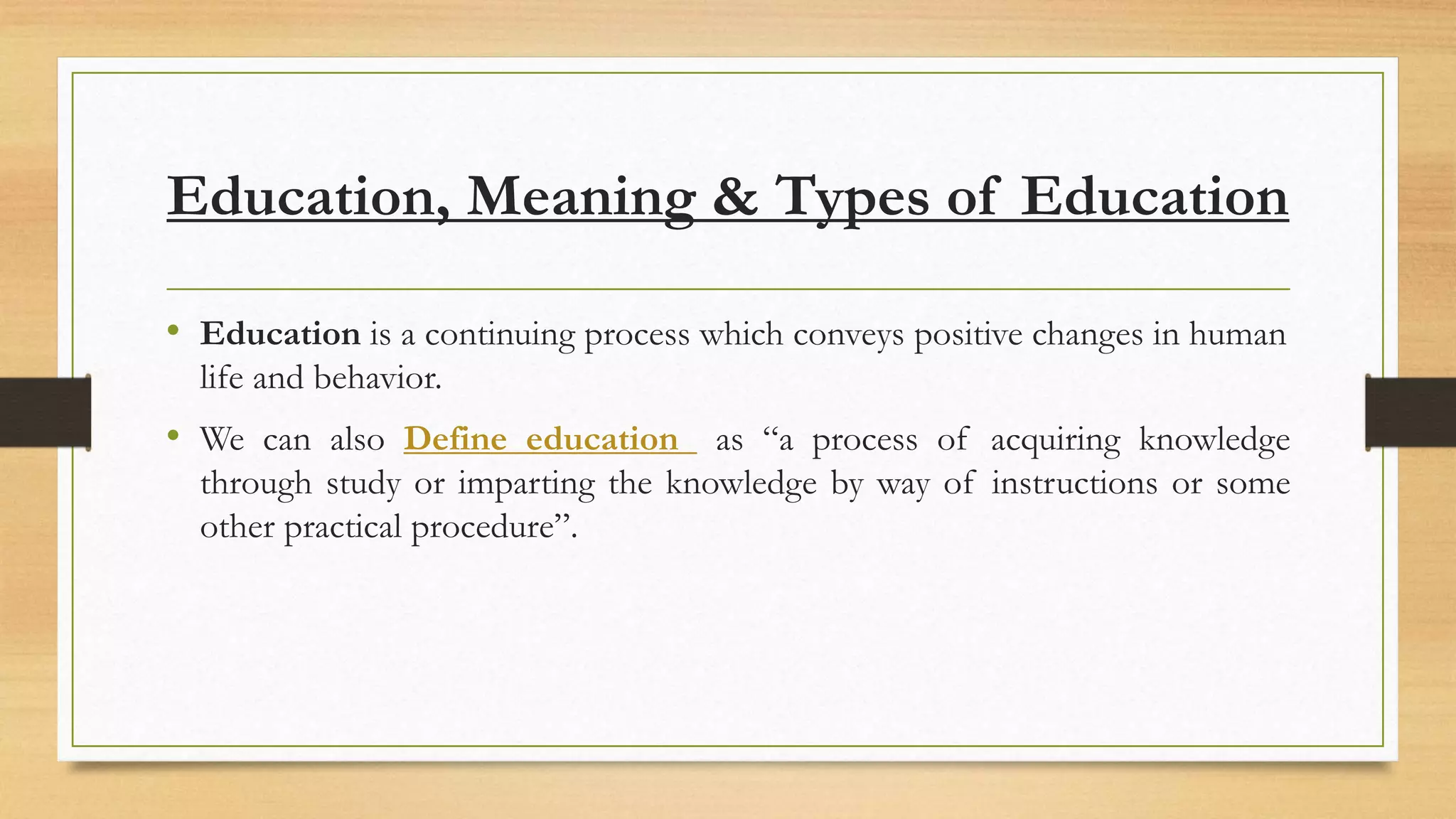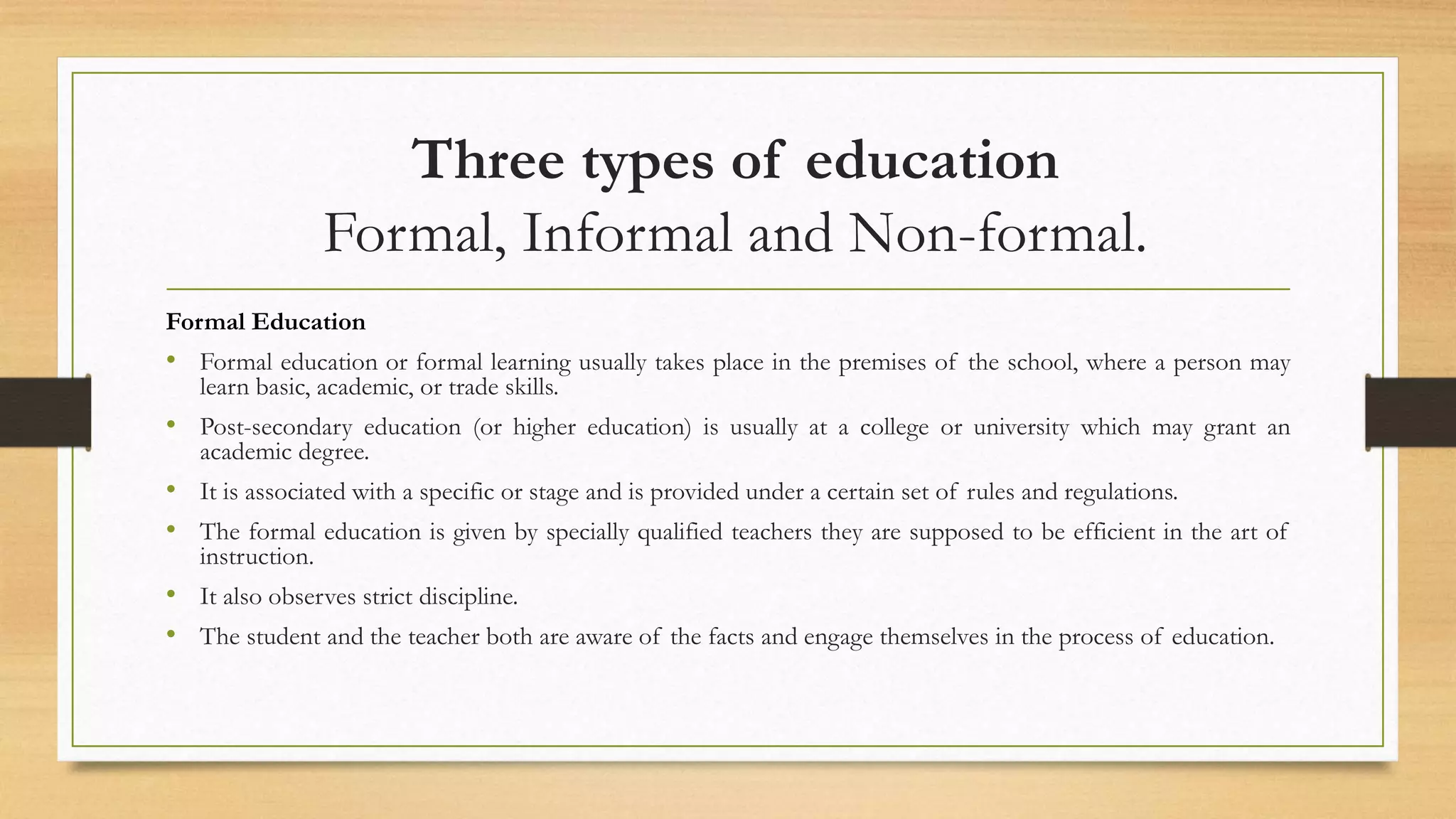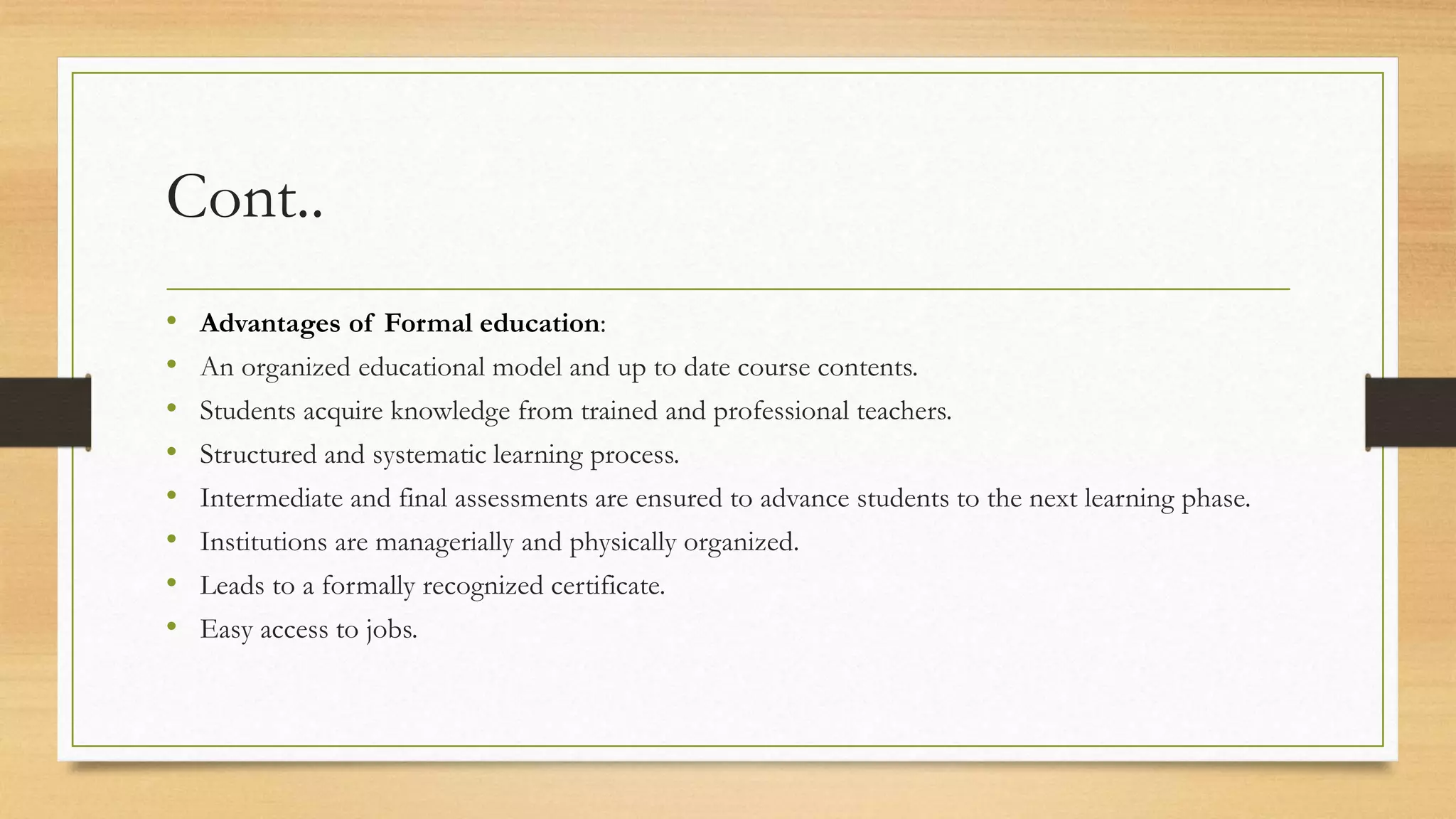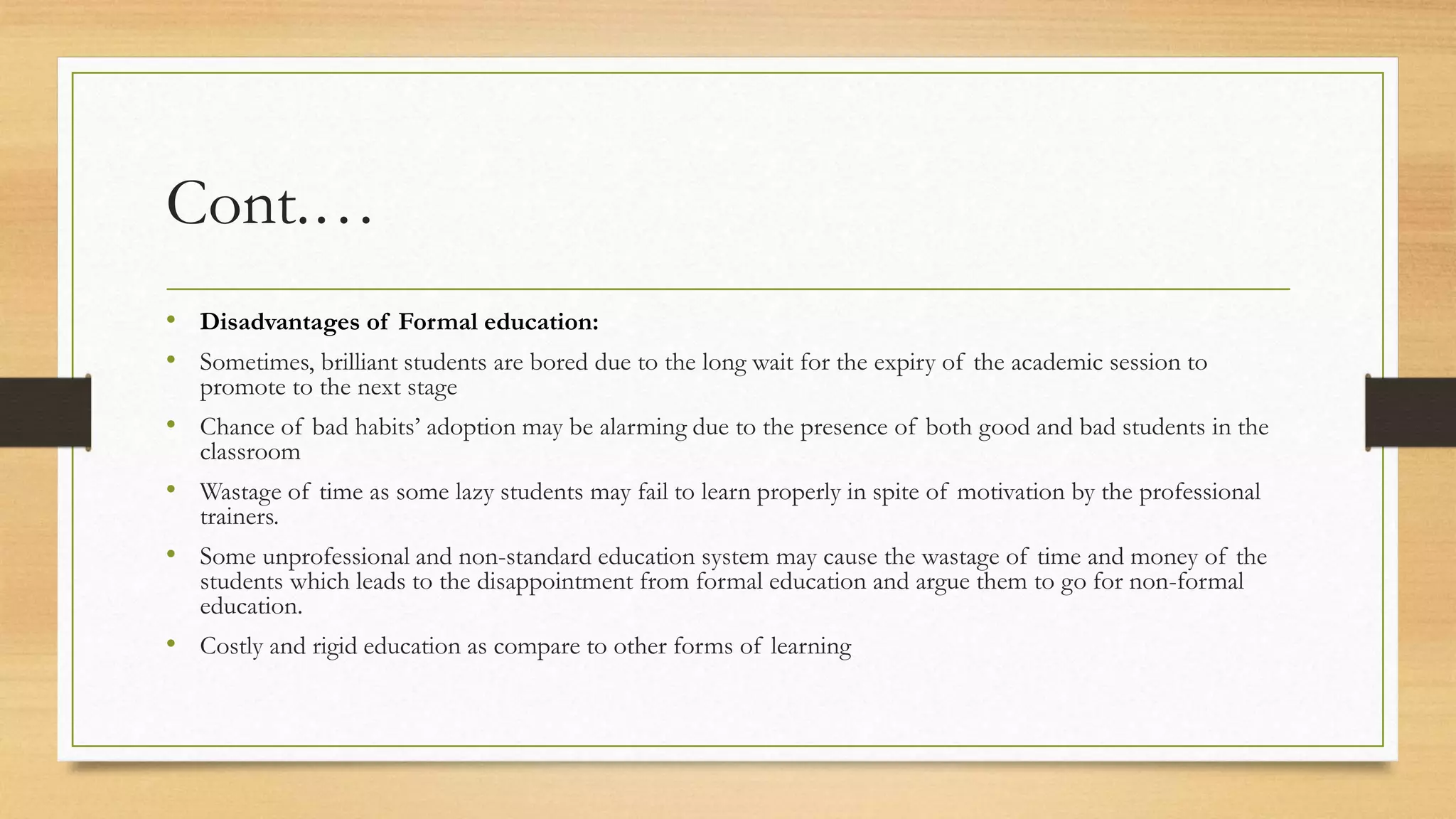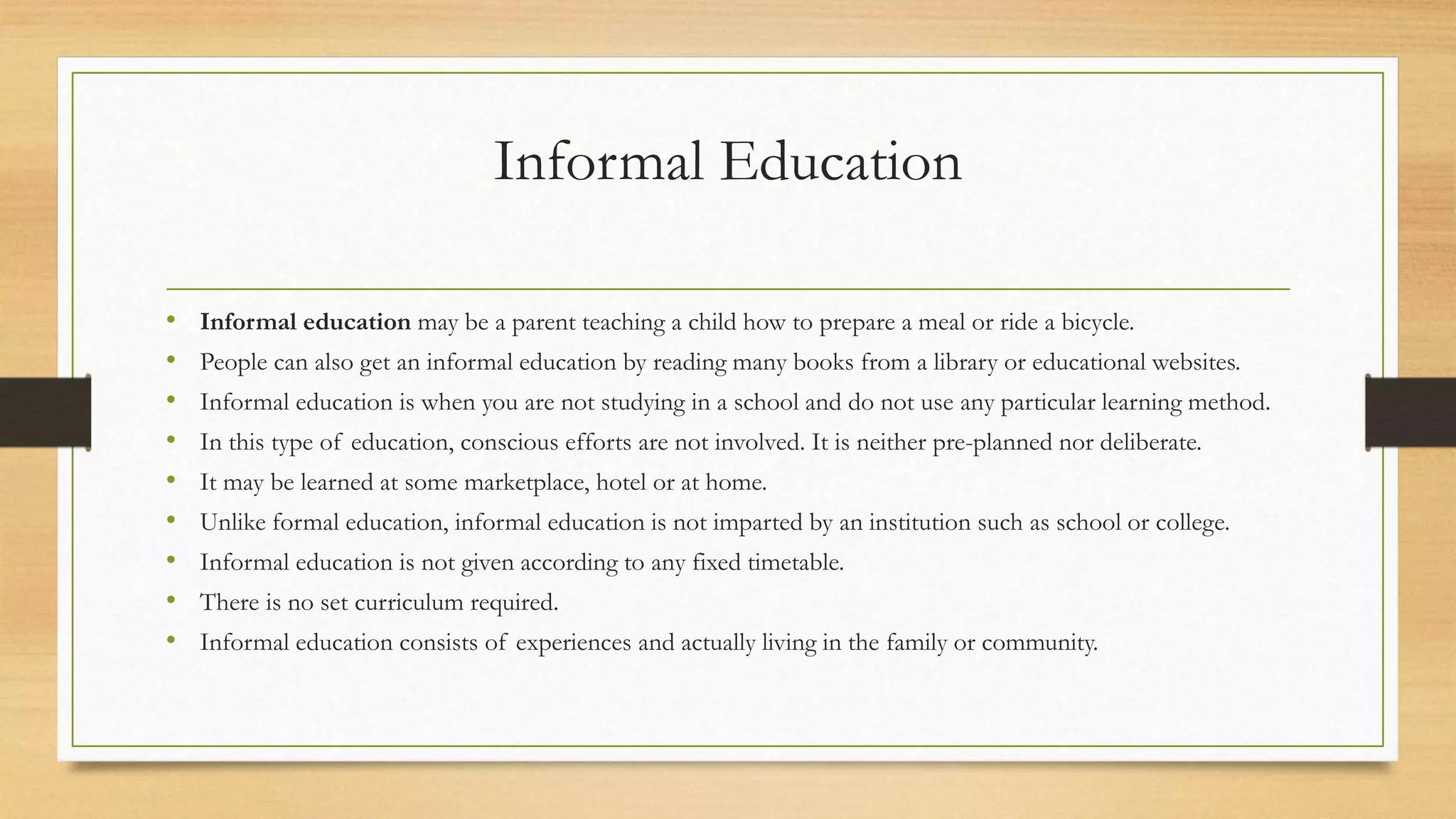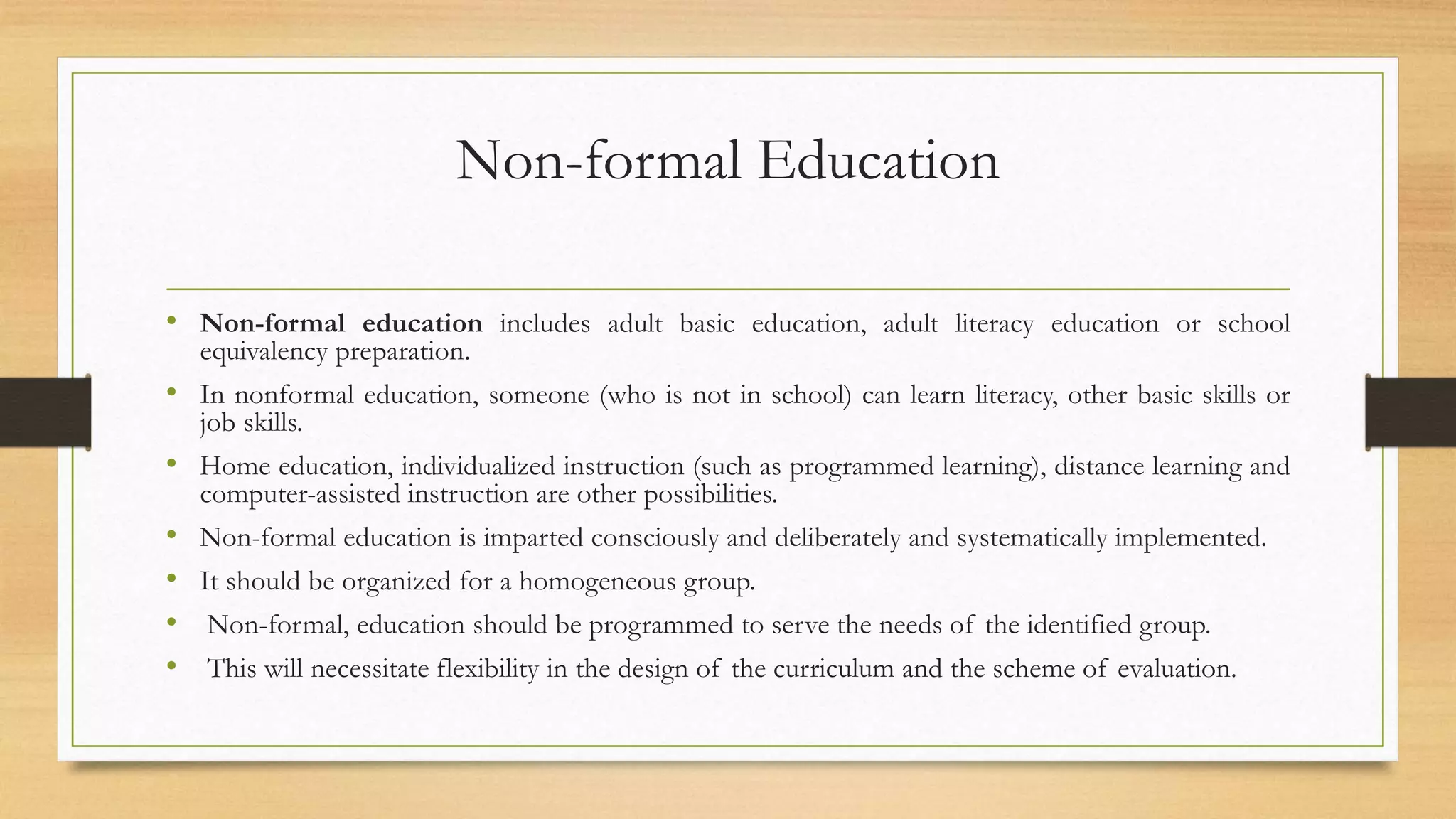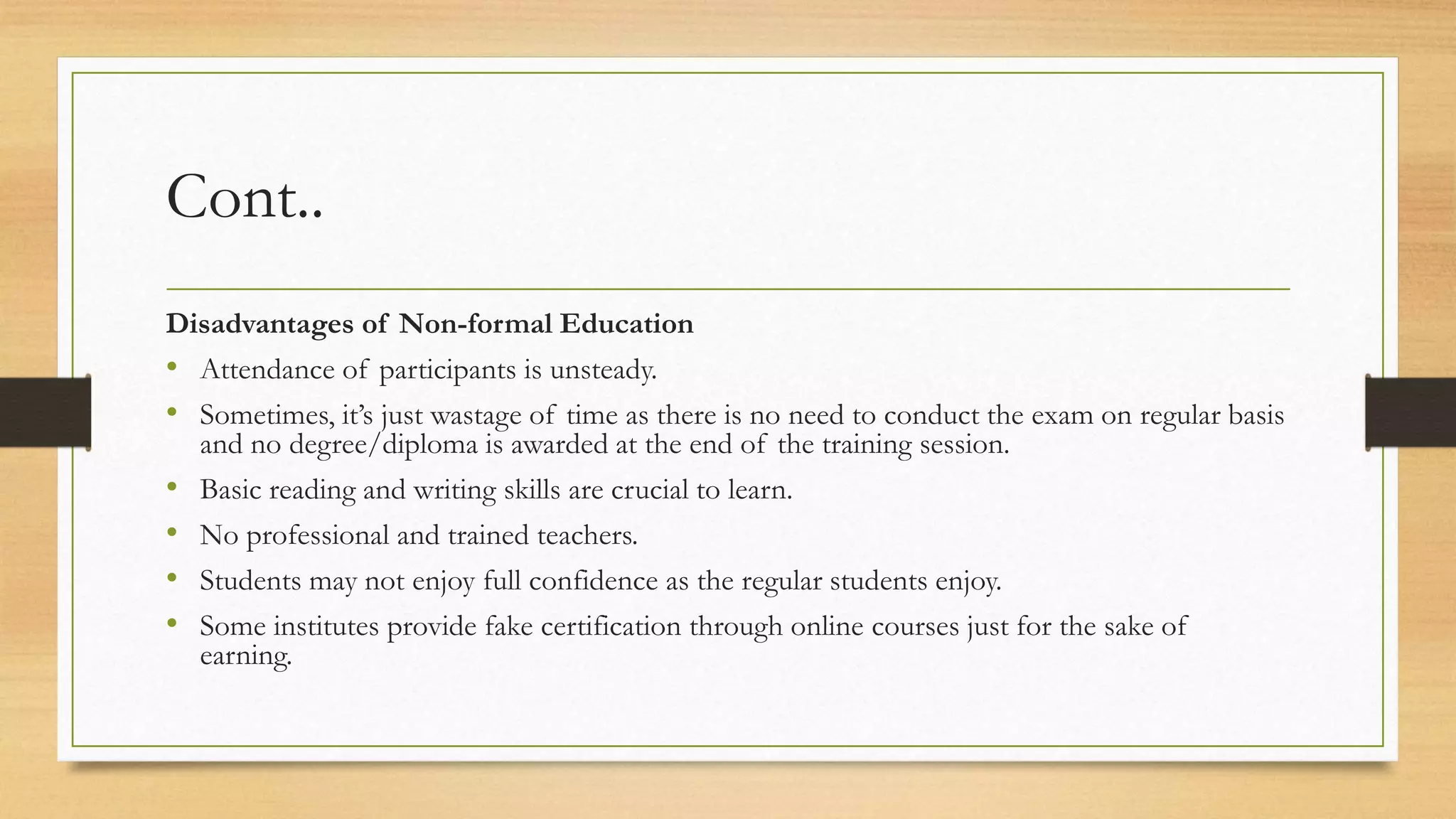The document discusses the concept of education, defining it as a process that facilitates knowledge acquisition and personal growth. It categorizes education into three types: formal, informal, and non-formal, each with distinct characteristics, advantages, and disadvantages. Formal education is structured and classroom-based, informal education is unstructured and life-experience based, while non-formal education is systematic and flexible, catering to specific learning needs.

